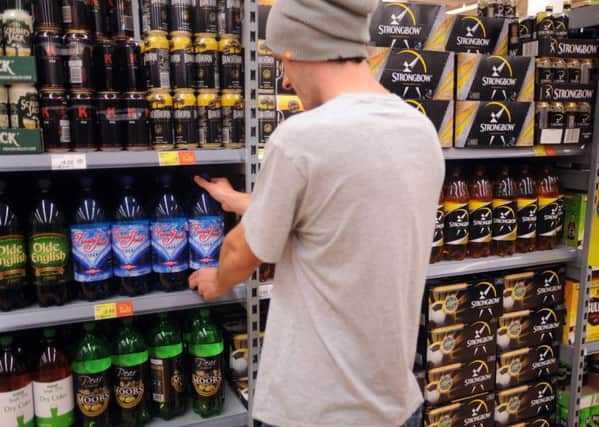The story of how Scotland brought in minimum pricing on alcohol


The idea, which was first mooted over a decade ago, has faced a long and difficult road to fruition, with proponents praising it as a radical step in tackling Scotland’s ill-fated love affair with the demon drink, and those opposed considering it a nanny-state knee jerk, a fad, or a waste of money.
Powerful industry groups opposed the legislation, and so began a protracted legal battle that finally came to end this morning.
Advertisement
Hide AdAdvertisement
Hide AdThe UK Supreme Court has now unanimously ruled that legislation to ensure alcohol sales met a price of 50-per-unit is not contrary to EU law.
Here is a potted history of the controversial policy, from origins to its ultimate realisation.
Early History
The idea of such drastic action to tackle the Health and Social issues caused by over-consumption of alcohol was first mooted by the SNP in their 2007 manifesto.
Then-leader Alex Salmond wanted the move to be their flagship legislative health achievement, but was undone by parliamentary arithmetic.
As minority government, the SNP administration of 2007-11 had to rely on support from other parties to pass the bill, which was not forthcoming.
Indeed, it sparked some of the most vitriolic exchanges of that term, with Labour in particularly fiercely against the idea.
Jackie Baillie, who was criticised after receiving crates of beer from Peroni as a thank you for voting against the policy, called the move ‘a tax on the poor, paid directly into the pockets of supermarket shareholders.’
A vote to introduce minimum pricing in late 2010 failed to gain enough support, though a package of measures to reduce alcohol misuse did pass.
Political upheaval
Advertisement
Hide AdAdvertisement
Hide AdLess than a year after that vote, however, everything in Scottish politics had changed, seemingly for good.
Despite expectations of another knife-edge result, the SNP romped to victory in the 2011 Holyrood elections, winning a majority many thought was impossible.
Mr Salmond’s government soon sought to pass some of the legislation that parliamentary maths had put paid to in the previous term, minimum pricing among them.
Despite an intense lobbying effort – the boss of Alcohol Focus said drinks industry bodies ‘decamped to Scotland’ – the Alcohol Minimum Pricing Bill passed easily, with only Scottish Labour (bar the rebelling Malcolm Chisholm) staunch in their opposition.
Legal battles
The response to the legislation was broadly supportive, but it was clear the bill would have to go through several steps to pass legal muster.
Five of Europe’s biggest wine-producing countries, France, Spain Italy, Portugal and Bulgaria, opposed the plan, and in guidance to the SNP Government, the European Commission made it clear the policy could breach EU law.
The Scotch Whisky Association, the Trade Body representing whisky manufacturers and distributors, launched their own legal challenge.
After an initial setback in the Court of Session, the body representing much of the industry which is worth billions to Scotland’s economy, the SWA took their case higher, to the European Court of Justice.
Advertisement
Hide AdAdvertisement
Hide AdThat body made it clear they believe that the legislation could breach free trade rules, but also insisted it was a matter for UK and Scottish courts to decide.
The ruling saw seven Supreme Court judges making their judgement that the legislation didn’t breach European law.
With the SWA seeming to indicate that they have no plans to try and appeal the rulings any further, it seems that a projected legal battle could finally come to an end.
After more than ten years, countless arguments, and the judgement of several courts, Scotland will become the first part of the UK to introduce a minimum unit price for alcohol.
Whether it will work will take much longer to determine.
New alcohol prices with a 50p minimum unit price
Vodka - £13.13 for a 70cl bottle
Whisky - £14 per bottle
Lager - £1 for a standard 4% 400ml can
Wine - £4.69 per bottle
Cider - £2.50 for a 5% 1 litre bottle